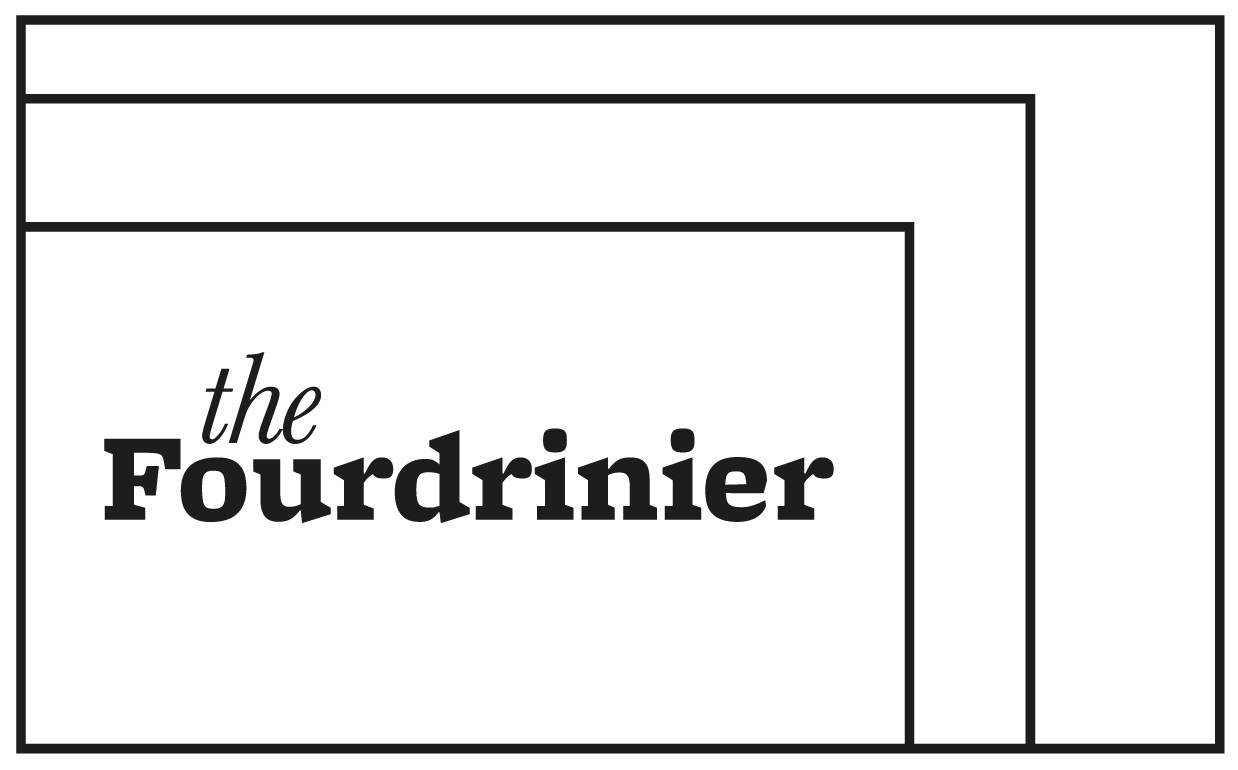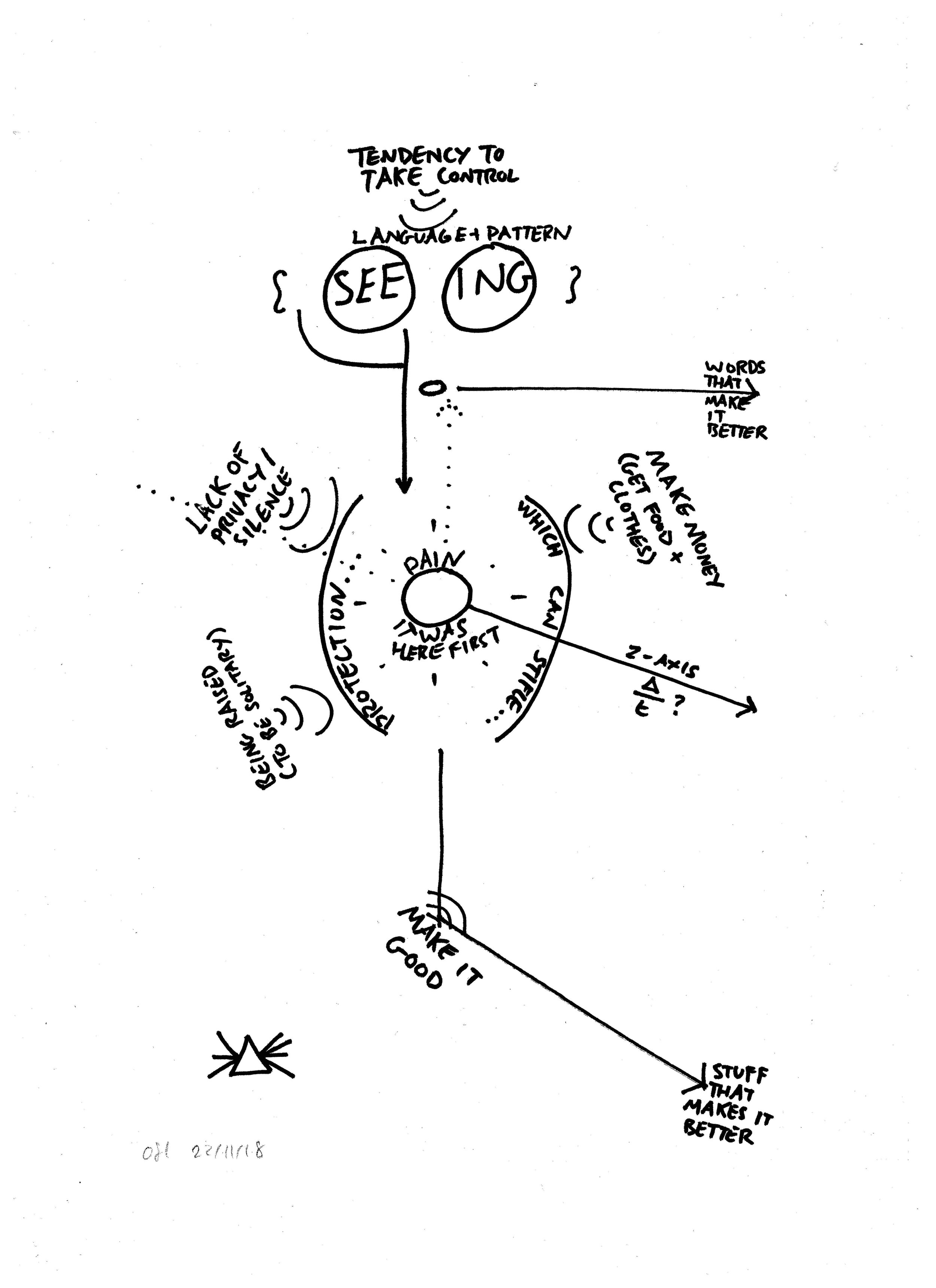‘Trying to get away from the idea of making “good” images’ – Five Minutes With Owen Herbert
Greg Thorpe
Owen Herbert, Rain, 2015, revived 2019
‘Part of the inspiration for this exploration of rain was a single page of a notebook, practically a doodle, which was a shadow of rain dried on a window. I keep several notebooks at once with no particular rationale until they are full.’
Artist Owen Herbert originates ideas and strategies on paper before moving from sketch into sculpture and latterly, sound. Here, he speaks to Greg Thorpe about taking casts of rainfall and the lure of cheap paper.
1.) What artist has most influenced your practice and why?
Who knows where influences come from, or indeed, where they go, or resurface from. But to name one individual, I’ve been re-acquainting myself with the work of John Latham, whose esoteric depth of thought is an inspiration to me. I don’t know the ins-and-outs of his relationship to the art world, but it seems to have been his ideas that mattered in the end.
2.) What is your relationship to paper as a creative material? What draws you to it?
It starts with the simple fact that paper is readily available. It makes up notebooks, sketchbooks, pads, as well as finished or semi-finished pieces. It allows us to communicate through drawing without ruining the walls, it can be stored and revisited. My favourite papers are cheap and convenient, though I appreciate the craftsmanship of a heavy cartridge. I find extremely good papers hinder experimentation. I’m drawn to paper because of its immediacy and its ability to keep a faithful record.
3.) Have you been making any art during Lockdown? If so, can you tell us a bit about what you're working on?
I’ve been looking further into my existing works. I’ve been taking plaster casts of rainfall since early 2019. The works reference both fossil records and mathematical probability, amongst other ideas. The ‘images’ are real, not representational, and contain encoded information of a certain time and space. In lockdown, I’ve been able to do these on a small scale, but as well as the exceptionally good weather, the next stage of their physical development required an extra pair of hands. So instead I’ve been collaborating virtually with friends in other fields to produce sounds and images from the rainfall prototypes I already have.
Owen Herbert, Portrait, 2018
‘Much of my work on paper is diagrammatic drawings, which allow me to explore ideas and influences. This one explores the idea of a person (myself) changing through time, being influenced by environment, yet somehow remaining identifiably the same person.’
4.) What are you reading/watching/listening to atm?
I’ve been listening to algorithmically-recommended playlists, and poetry podcasts. I find poets have a way of making connections that might be otherwise difficult to reach. Listening helps my imagination and gives my eyes a break. I’ve been watching videos of artist studio visits, helping me to reflect on process. I’ve been short of books, but I’ve enjoyed online interviews such as What You See Is What You See, between Donald Judd and Frank Stella. Not all my media consumption has been ‘highbrow’. Bojack Horseman is good even when your attention is low.
5.) If you could travel anywhere in the world, where would you choose?
The sensation of being able to travel was one I treasured, and while I could list exotic destinations, in reality, if I could go anywhere I would probably go to Sheffield or Stroud, which is where some of my closest friends are. No, I have a better answer. If I could go anywhere, I would go to the pub. Somewhere cool and calm in the day, raucous and sweaty at night, where I could pay too much, get jostled half to death, and come home covered in beer.
Owen Herbert, Observational, 2020
‘I am trying to get away from the idea of making ‘good’ images. Even so, I do sometimes draw (on the good paper!) to train my attention and explore forms.’
Owen Herbert is a sculptor in Manchester who operates out of Islington Mill, Salford. He is a graduate in Fine Art (Sculpture) from the University of Brighton. Owen facilitates arts in the form of technical work, workshops, and artist conversations. His work is influenced by conceptualism, psychogeography and ephemera, as well as in-depth engagement with ‘resistant’ materials. Read more at www.owenherbert.co.uk.



